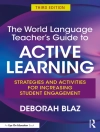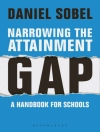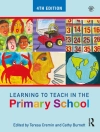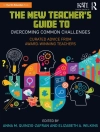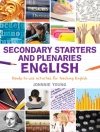This expansive collection sets the stage for the next generation of Hip Hop scholarship as we approach the fiftieth anniversary of the movement’s origins.
Celebrating 50 years of Hip Hop cultural history,
Freedom Moves travels across generations and beyond borders to understand Hip Hop’s transformative power as one of the most important arts movements of our time. This book gathers critically acclaimed scholars, artists, activists, and youth organizers in a wide-ranging exploration of Hip Hop as a musical movement, a powerful catalyst for activism, and a culture that offers us new ways of thinking and doing freedom.
Rooting Hip Hop in Black freedom culture, this state-of-the-art collection presents a globally diverse group of Black, Indigenous, Latinx, Asian American, Arab, European, North African, and South Asian artists, activists, and thinkers. The “knowledges” cultivated by Hip Hop and spoken word communities represent emerging ways of being in the world.
Freedom Moves examines how educators, artists, and activists use these knowledges to inform and expand how we understand our communities, our histories, and our futures.
विषयसूची
Contents
Preface
Shout Outs
Making Freedom Move(s): Hip Hop Knowledges, Pedagogies, and Futures
H. Samy Alim, Casey Philip Wong, and Jeff Chang
PART I: BLACK, INDIGENOUS, AND DIASPORIC KNOWLEDGE
1. Sweat the Technique: The Politics and Poetics of Hip Hop
Rakim, Chuck D, and Talib Kweli
2. Know the Ledge(s): The Meanings of Knowledge of Self in “Post”-Apartheid South Africa
Shaheen Ariefdien and Emile YX?
3. “Al-shaab yurid isqat al-nitham!”: Sustaining Revolution in Palestine and Syria
through Hip Hop
DAM (Tamer Nafar, Suhell Nafar, and Mahmoud Jreri), Omar Off endum, and Ramzi Salti
4. “The Revolution Will Be Indigenous”: Collective Liberation, Healing, and Resistance
to Settler Colonialism through Hip Hop
Jessa Calderon, Gunner Jules, Lyla June, Tall Paul, and Tanaya Winder, with Casey Philip Wong
5. “Luchando Derechos” in Neoliberal Spain: Hip Hop Visions beyond Racism, Xenophobia,
Islamophobia, and the Gentrifi cation of El Raval, Barcelona
La Llama Rap Colectivo with H. Samy Alim
PART II: HIP HOP ORGANIZING FOR ABOLITION, REPARATIONS, HEALING, AND GROWTH
6. 1Hood: Hip Hop Art, Activism, and Media Creation in Pittsburgh
Jasiri X
7. “Protection from Police Who Hinder Respiratory Airways”: Hip Hop Theatre and Activism with
Kuumba Lynx in Chicago
Jacinda Bullie, Jaquanda Saulter-Villegas, and Leyda “Lady Sol” Garcia
8. Ripples of Hope and Healing: Sustaining Community by Creating a Social Justice Arts Ecosystem
Sonya Clark-Herrera, with Measha Ferguson Smith, hodari blue fka Adorie Howard, Reagan Ross, and
Casey Philip Wong
9. Beyond Trauma: Storytelling as Cultural Shift and Collective Healing
Bryonn Bain, Mark Gonzales, A-lan Holt, and Michelle Lee
PART III: HIP HOP AS CRITICAL, CULTURALLY RELEVANT AND CULTURALLY SUSTAINING PEDAGOGY
10. “Where the Beat Drops”: Culturally Relevant and Culturally Sustaining Hip Hop Pedagogies
Gloria Ladson-Billings, Django Paris, and H. Samy Alim
11. How Hip Hop Means: Retrospect for Beats, Rhymes, and Classroom Life
Marc Lamont Hill
12. The Magic behind Science Genius: How Hip Hop Can Transform Science Education
Christopher Emdin and The GZA, with Bryan Brown
13. Hip Hop, Whiteness, and Critical Pedagogies in the Context of Black Lives Matter
A. J. Robinson
PART IV: QUEER, FEMINIST, AND DIS/ABILITY JUSTICE HIP HOP FEATURES
14. The Pleasure Principle: Articulating a Post–Hip Hop Feminist Politics of Pleasure
Joan Morgan, Brittney Cooper, Treva Lindsey, Kaila Adia Story, and Esther Armah
15. “When Can Black Disabled Folks Come Home?”: The Krip-Hop Movement, Race, and Disability Justice
Leroy F. Moore Jr. and Stephanie Keeney Parks
16. Queering Hip Hop Feminist Pedagogies in the New South
Bettina Love, Regina N. Bradley, and Mark Anthony Neal
17. “These Are Not Sonnet Times”: Building toward Liberatory Futures
Maisha T. Winn
Contributor Bios
Index
लेखक के बारे में
H. Samy Alim is the David O. Sears Presidential Endowed Chair in the Social Sciences and Associate Director of the Ralph J. Bunche Center for African American Studies at UCLA, where he directs the Hip Hop Initiative. His books include Neva Again: Hip Hop Art, Activism, and Education in Post-Apartheid South Africa, Roc the Mic Right: The Language of Hip Hop Culture and Culturally Sustaining Pedagogies: Teaching and Learning for Justice in a Changing World.Jeff Chang is a writer, organizer, and teacher. His books include Can't Stop Won't Stop: A History of the Hip-Hop Generation, Water Mirror Echo: Bruce Lee and the Making of Asian America, Who We Be: A Cultural History of Race in Post-Civil Rights America, and We Gon’ Be Alright: Notes on Race and Resegregation.Casey Philip Wong is Assistant Professor in Georgia State University’s College of Education and Human Development. His forthcoming book is adapted from his dissertation, Pray You Catch Me: A Critical Feminist and Ethnographic Study of Love as Pedagogy and Politics for Social Justice. He has helped organize four Hip Hop Think Tank gatherings and worked in the field of Hip Hop pedagogies for over fifteen years.


